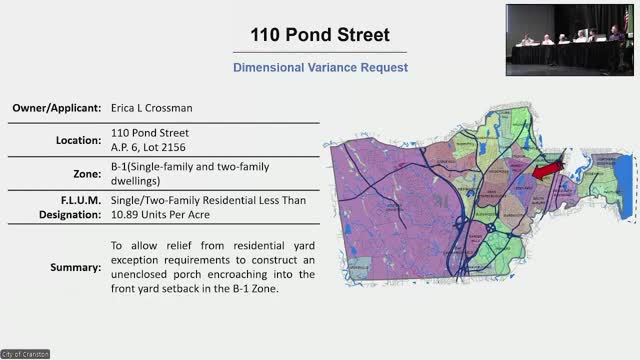Article not found
This article is no longer available. But don't worry—we've gathered other articles that discuss the same topic.

Planning commission reviews ordinance "cleanup" package, debates mail-notice method and floodplain appeals

Planning commission forwards zoning recommendations to zoning board review; votes summarized

